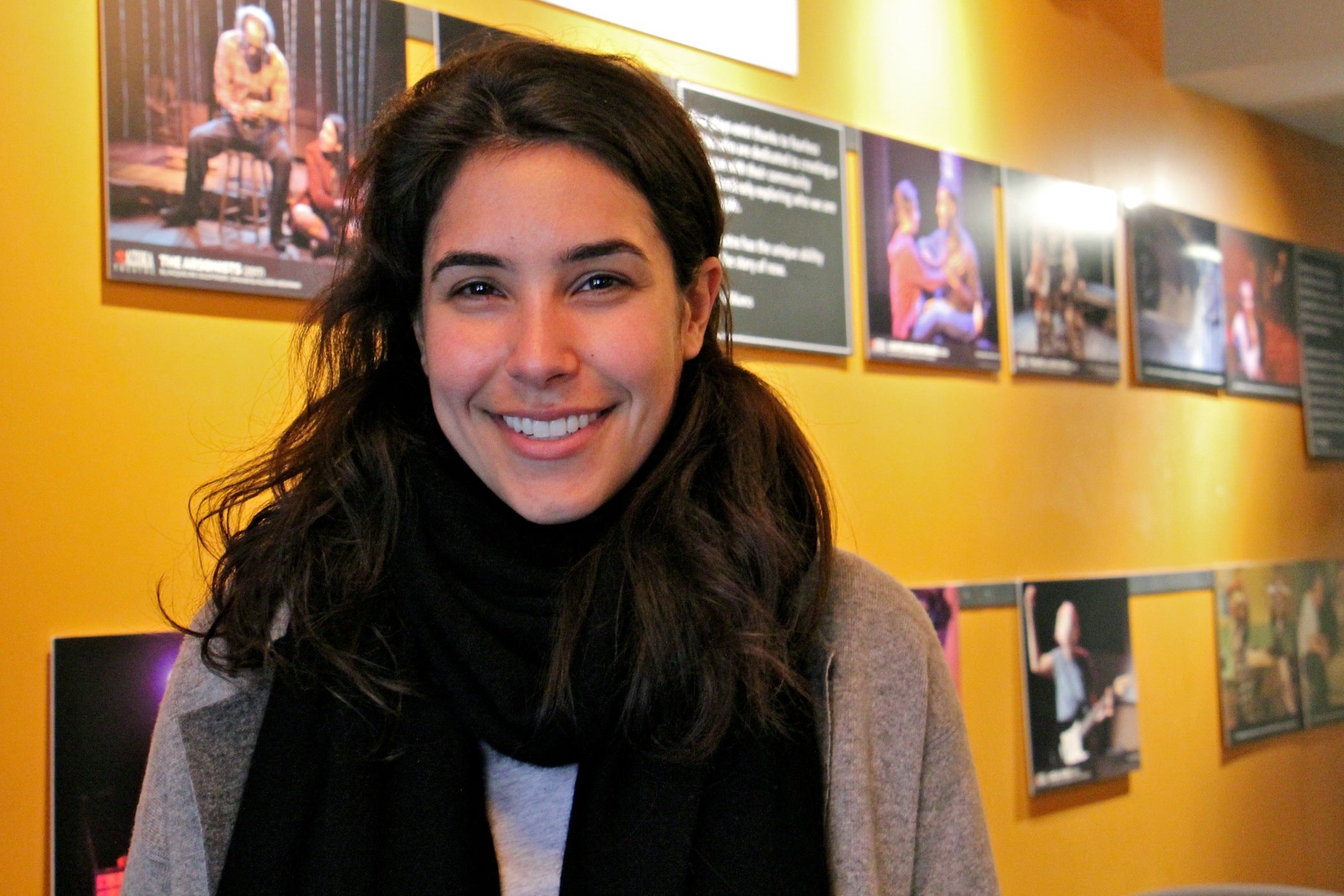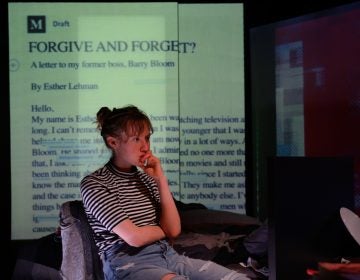Harvey Weinstein fictionalized in new play by author who witnessed downfall
Emily Acker watched the Weinstein Company collapse, from the inside. She wrote a play based on that dissolution.
Listen 2:17
Alison Ormsby portrays the title character in "Boycott Esther," about a young woman working for a Hollywood mogul who gets embroiled in a sex scandal. (Emma Lee/WHYY)
A playwright from Philadelphia found herself caught in a national controversy while she was working for the Weinstein Company three years ago.
Emily Acker had been developing a TV pilot at the Weinstein Company when allegations of sexual crimes arose against co-founder Harvey Weinstein.
Her project quickly evaporated, and she wrote a play based on the experience. “Boycott Esther” opens this weekend.
Acker (co-founder of the Orbiter 3 theater company, now living in San Francisco) was hired in 2016 by the Weinstein Company to develop a reboot of a BBC sitcom from the 1980s, “Three Up, Two Down,” and to write a pilot episode.
It was a career-making opportunity, and she spent about a year working on it.
Acker said she primarily worked with the company’s head of television, only briefly interacting with Weinstein over the phone.
“Just prior to us selling the show to a network, the first expose dropped in the Times,” said Acker. “ As the company went, so did the show.”
Reeling from dozens of women accusing Weinstein of sexual misconduct, and even rape (ultimately more than 100 women came forward), the company went into crisis mode.
“It sort of spiraled,” said Acker. “It became clear the priority was not to develop anything new, but to weather this storm. I don’t own the show. I couldn’t take it anywhere. It’s still there. Sitting.”
Eventually the Weinstein Company filed for bankruptcy.
A mix of emotions

Acker said she sympathized with the accusers, even as her professional aspirations were left in the cold.
“There were definitely conflicting emotions,” she said. “Emotionally, I’m in complete solidarity with these women and their bravery to come out against this guy. Professionally, it halted an exciting project that had future implications for my career. And, obviously, financial implications.”
In response, she started writing.
What resulted is “Boycott Esther,” produced by Azuka Theatre and opening this weekend at the Drake. Acker is quick to point out it is not a play about herself, but rather informed by her experiences.
The play’s title character, Esther, is a social media influencer working for a Hollywood mogul, one who – like Weinstein – is accused of sexual misconduct. Months later, he contacts her to ask for advice on how to contain his crisis and what he can do to facilitate social change regarding sexual misconduct.
She gives him her ear. Their interaction goes public.
“Instead of blowing him off, she pens an open letter investigating those questions,” said Acker. “Because of her evenhandedness, the internet responds.”
The play ultimately becomes an examination of behaviors on the internet, as kneejerk opinions online come down on Esther like a sledgehammer.
“Often backlash on the internet lacks nuance,” said Acker. “But also, people who use the internet intentionally to brand themselves use that lack of nuance. They paint a broad stroke of who they are and what they are trying to sell, without nuance. So it works both ways.”
The play uses screens, projections, and computer sounds to re-create the online world of the title character. It runs at the Proscenium State of Drake Theater until May 19.
WHYY is your source for fact-based, in-depth journalism and information. As a nonprofit organization, we rely on financial support from readers like you. Please give today.





